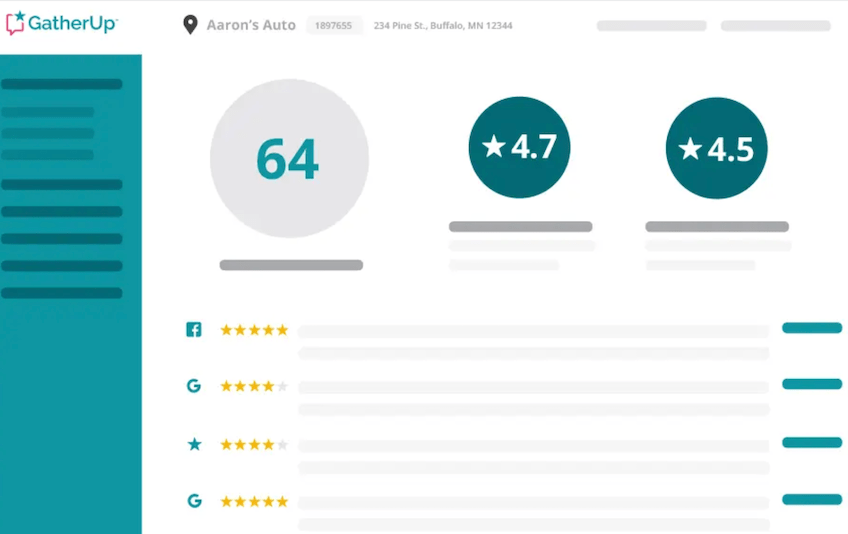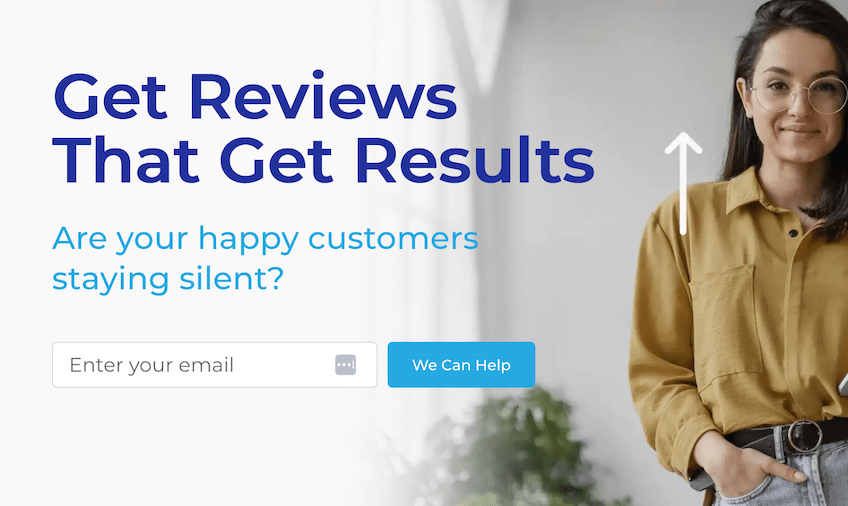White label reputation management involves offering reputation management services under the name of another agency. An example would be a digital marketing agency that doesn’t specialize in reputation management entering a white label agreement with a specialist reputation management agency to deliver services on its behalf.
In some cases, certain online reputation management software can be white labeled, too. Under the white label agreement, you can pass the software off as your own, providing your clients with this highly sought-after service without having to develop it yourself.
When You Should Partner with a Reputation Management Agency to White Label Their Services
There are a few situations when it makes sense to form a partnership with a reputation management agency.
One is when you’re looking to contract out the labor-intensive services of reputation management but don’t have the time or expertise to offer comprehensive services of your own. Given that reputation management is fairly productized, where the service package is the same across clients, it’s often feasible to add these services by partnering with a professional agency.
Under this partnership, you could provide your clients with high-level reputation management services without having to add a ton to your plate, as long as the services are standardized.
If you try to offer these types of reputation management services in-house, you may need to increase your staffing to accommodate the extra manpower needed to provide this service—which can be incredibly risky. This is especially true if a key client leaves your agency unexpectedly.
However, by partnering with a reputation management agency, you greatly reduce the risk on your end.
Another huge benefit of white labeling is that it allows you to provide reputation management services while focusing on the client relationship and not risking the extra overhead. So when your goal is to provide reputation management to meet client demand and still give each client a high level of attention, this is often the right move to make.
Just remember that the key to this arrangement working is focusing on services that are fairly labor intensive and repeatable. Reviewing takedown requests, making manual requests to remove search results, and spreading press releases are all good examples. This arrangement allows you to delegate these types of services to another company smoothly in a cost-effective way, even if you lack expertise or don’t have the time to do it in-house.
When You Should NOT White Label Reputation Management
On the other hand, there are some specific situations where you shouldn’t offer white label reputation management. This mainly includes offering any services that require a high degree of skill or customization, or when they involve high-stakes decisions.
For work like this, involving another team is likely to lead to mistakes and miscommunications. Or, if there’s a critical event happening where another team is involved and something gets missed, you risk ruining the entire relationship you have with your client.
A perfect example is crisis PR—a subset of reputation management. If your client is experiencing a real crisis, the last thing you want to do is pass them off to a random person you haven’t vetted at another company.
Just think of the disaster it can create if your client’s crisis is mishandled and it leads to severe backlash. In a worst-case scenario, this could even hurt your own reputation if you have an irate client on your hands that spreads negative publicity about your brand.
If you can’t provide this service yourself, you’d be much better off recommending a crisis PR firm that you trust rather than trying to collect a profit along the way. And as long as the client has a great experience from your recommendation, you’ll stand to make a lot more money in the long run.
The bottom line here is to stay away from white label reputation management that’s overly complex or requires a sophisticated skill set. Or, if your client’s reputation can potentially be ruined with one wrong move, it’s just not worth it.
What About White Labeling Reputation Management Software?
When it comes to software, if you provide your clients with multiple logins to view reporting and manage certain parts of their projects, this can be a great option. With this solution, you offer a third-party provider’s reputation management software under your own brand name without having to develop it yourself.
Many offer extensive customization, allowing you to use your brand’s color scheme and logo for full continuity.
A solid option for this is GatherUp, a white label reputation management software that’s specifically designed for agencies.

In its own words, “GatherUp is built with online marketing and SEO agencies in mind. Let our reputation management software, branded to be yours, make a digital marketing impact for your clients while growing your agency’s success and revenue.”
GatherUp’s core areas of focus include:
- Acquiring and monitoring local SEO and online reviews
- Posting top reviews to social media accounts
- Automatically generating personalized responses with advanced AI
- Getting NPS scores and surveys
- Offering detailed reporting based on customer feedback
GatherUp offers a free 14-day trial so you can take this software for a spin before making your decision. Besides that, it’s flexible with its pricing, which offers plenty of scalability if you bring more clients on board down the road.
Another good option is Merchynt. This company scales easily and can work with digital marketing agencies of all sizes.

This software focuses on three key areas.
First, it allows you to conveniently create and manage client business listings from search engines, business directories, and virtually everywhere online.
Second, you can use it to manage a client’s reputation from a single, intuitive dashboard. Or, if you want to share the information with your client, you can provide them with their own logins, enabling them to monitor and manage reviews on their own.
Whether it’s you who’s managing a client’s reputation or the client doing it themselves, everything can be done in one place without having to log into multiple platforms.
Third, this software is designed to help clients maximize the number of positive reviews they receive through email, SMS, and QR codes. It’s a simple yet effective system that most clients have good results with.
It’s a solid option if you’re not ready for a full commitment as it doesn’t require annual contracts. And according to Merchynt, 99% of trial users continue to use the platform after 30 days, which shows that the vast majority of trial users get enough value to warrant continued use of the software.
Finally, there’s ReviewInc, a software company that specializes in managing online reviews.

With ReviewInc, your clients can stay in the driver’s seat in terms of what’s being said about their business.
This software streamlines the process of responding to reviews (good or bad) and swiftly following up with customers, as well as turning a business’s most positive reviews into testimonials to bring about further good exposure.
It also has robust automation features that in ReviewInc’s own words let you “Set it up, step back, and watch it work.” And there’s also a campaign feature, which helps generate more positive reviews.
ReviewInc makes it simple to match its platform to your brand and create customized reports, featuring your unique logo and color scheme. It also offers an in-depth admin portal, where you can conveniently manage multiple accounts, logins, access, templates, and more from one single location.
Best Options for White Labeling Reputation Management
Most online reputation agencies won’t necessarily advertise the fact that they offer white labeling. In many cases, you’ll have to reach out to them to find out and ensure they allow for rebranding to integrate with your brand’s identity.
If you plan on partnering with an agency, you’ll want to talk to multiple companies, regardless of who gets heavily recommended or if one particular agency instantly stands out. What’s important is that both of your cultures mesh well. In fact, one agency may be a great fit for you and another one may be terrible based simply on cultural fit alone.
Be sure to pay attention to these key factors when choosing the right partner:
- It has the core features your clients need
- There’s reliable customer support
- It has comprehensive integrations with other marketing tools you use
- There’s strong security protocols in place to protect sensitive client data
It’s also best if you can test the waters using a free trial where you partner with an agency for a period and see if it’s the right fit before making a commitment. As long as an online reputation agency checks all of those boxes, you should be in good shape.
A good starting point is our list of the best online reputation management companies, which gives you some different quality options based on your business’s specific needs.
